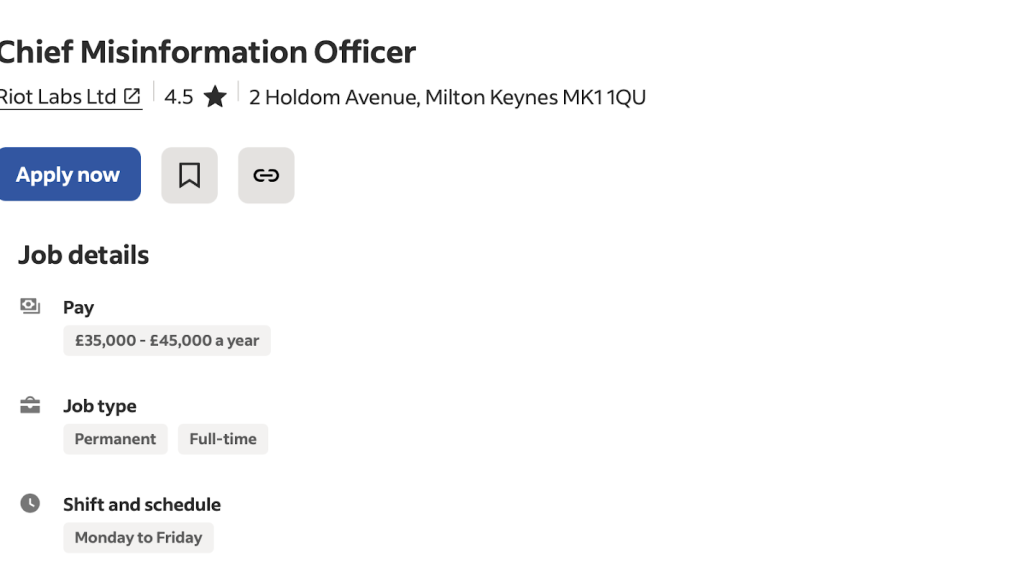Despite extensive scientific evidence showing that e-cigarettes are significantly less harmful than traditional cigarettes, recent media coverage has exaggerated the health risks of vaping, inaccurately equating it with smoking. These misleading claims originated from an unpublished, non-peer-reviewed, and incomplete study, from the Manchester Metropolitan University, and of course raised serious concerns about the media’s failure to verify their sources and ensure accurate reporting.
Public health advocates have consistently warned that such sensationalized stories may discourage smokers from transitioning to less harmful alternatives, potentially undermining smoking cessation efforts. Experts stress the need for evidence-based communication to combat false information, reduce public fear, and highlight vaping’s role as a safer alternative to smoking—an approach that could save millions of lives worldwide.
A much needed misinformtion watchdog
Riot Labs CEO Ben Johnson emphasized that the industry is “tired of having vape misinformation pushed on them” and believes the new hire will play a key role in protecting both retailers and adult smokers trying to quit. With the UK preparing for stricter vape regulations, including the upcoming disposable vape ban on June 1st, the position is seen as critical for maintaining balanced public discourse.
The Chief Misinformation Officer will be tasked with monitoring media reports, analyzing scientific studies, and addressing misinformation with evidence-based responses. The successful candidate will provide accurate information to the public, helping counter misleading stories that can deter smokers from switching to less harmful alternatives.
Discussing the study which ignited the idea for this role, Johnson highlighted its small sample size of 20 vapers, lack of peer review, and short three-month duration. He emphasized that such flawed research makes sensational headlines but misleads the public.
Riot Labs’ initiative aligns with their Riot Activist campaign, which advocates for harm reduction and protects adult smokers seeking alternatives. The company remains committed to defending the industry’s reputation while highlighting vaping’s proven benefits as a smoking cessation tool.
Applications are still open
With support from prominent figures in the field, such as tobacco harm reduction expert Clive Bates, and UKVIA’s John Dunne, this initiaitive will promote the availibility of accurate, science-based information to those who need it most. The application process is still open, with Riot Labs aiming to fill the position by summer 2025. To this effect, anyone interested in applying is still in time to do so.
Combating false information through fact-based communication is essential to ensure that smokers receive accurate information about safer alternatives, and the Chief Misinformation Officer will play a crucial role in this fight. Innacurate fear-based reports about vaping products pose a serious public health risk by discouraging smokers from switching to safer alternatives.
Sensationalized media reports falsely equating vaping with smoking mislead the public, creating unnecessary apprehension and confusion. By deterring smokers from quitting, this misinformation can ultimately sustain tobacco-related diseases and deaths. Additionally, unverified claims can lead to misguided policies, restricting access to harm reduction tools. By promoting evidence-based discussions, public health advocates can help save lives and support effective harm reduction strategies.












